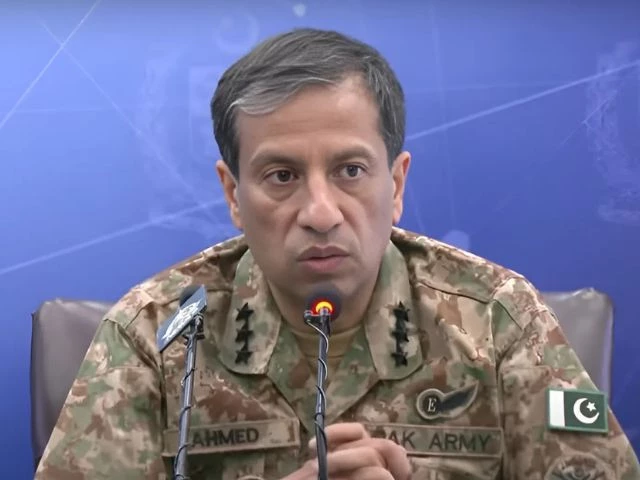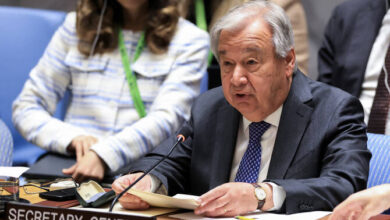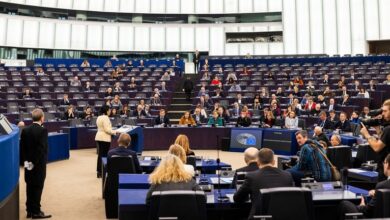Inter-Services Public Relations (ISPR) Director General Ahmed Sharif Chaudhry described the recent tensions with India as more than a military standoff, calling it a “battle of truth” waged across information, diplomatic, and strategic fronts, in an interview with Al Jazeera.
DG ISPR criticised the Indian government and media for spreading what he called false narratives following the Phalgham incident, in which India alleged Pakistani involvement.
He dismissed the notion that India can block Pakistan’s water as “insane thinking”, observing that six major rivers originate from Kashmir.
DG ISPR reiterated that Kashmir remains an international dispute, involving Pakistan, India, and China, and should be resolved through UN resolutions and the will of the Kashmiri people.
“Only a mad person can think that India can stop Pakistan’s water. It is not possible to cut off water for 240 million people,” said the military spokesperson responding to Indian Prime Minister Narendra Modi’s remarks.
Modi had said on Thursday that Pakistan would not get water from waters over which India has rights. The statement came a month after a deadly attack in Indian Illegally Occupied Jammu and Kashmir (IIOJK) led New Delhi to suspend a key river water-sharing treaty between the neighbours.
DG ISPR pointed out that six rivers originate from the Kashmir region and that, under United Nations resolutions, Kashmir remains a disputed territory.
“If Kashmir joins Pakistan, India becomes a lower riparian state. It will then be our decision how to manage the waters,” he said.
DG ISPR added that Pakistan had not deployed the full strength of its conventional forces, noting that many remain focused on anti-terrorism operations in Balochistan and Khyber Pakhtunkhwa, where India is accused of sponsoring militancy.
“Pakistan challenged India to present evidence to a neutral third party or the international community, but they have provided nothing,” he said, adding that New Delhi’s Ministry of External Affairs recently admitted the investigation is still ongoing.
The ISPR chief also denied recent claims in Indian media alleging Pakistani involvement in an attack on the Golden Temple, calling the allegation “the biggest lie possible”.
“We protect Sikh holy sites. We honour Kartarpur Sahib and respect our Sikh brothers. Our culture, values, and religion prohibit attacks on religious or civilian targets.”
DG ISPR said India’s credibility is eroding due to internal repression, including internet shutdowns and crackdowns on dissent.
“You can’t build trust by jailing journalists or banning thousands of websites. Has Pakistan jailed a single journalist during this conflict? Absolutely not,” he said.
The spokesperson praised the coordination between Pakistan’s Army, Navy, and Air Force, as well as unity with the political leadership and the public.
He pointed to the Air Force’s performance during the May 6–7 aerial engagements as an example of professional excellence, citing JF-17 Thunder and J-10C fighter jets and the deployment of Fateh-1 and Fateh-2 surface-to-surface missiles.
“This aerial campaign will be studied in military colleges for decades,” he said.
Global powers including the United States, China, Saudi Arabia, Qatar, and the UAE understand the grave risks of escalation between two nuclear-armed nations.
“India is playing with fire. We exercised wisdom and restraint to avoid a wider conflict,” he said.
While a ceasefire is currently in place, Chaudhry said true peace depends on India changing its “war-obsessed political mindset” and ending what he described as systemic oppression of minorities, including Muslims, Christians, Sikhs, and Dalits.
“Such oppression naturally provokes reactions, which India refuses to address,” he said.
He linked the Hindutva ideology with rising domestic extremism in India, arguing that India externalises its internal issues by blaming Pakistan.
DG ISPR reaffirmed Pakistan’s strategic alliance with China, calling it a multi-decade partnership based on mutual respect and regional stability.







